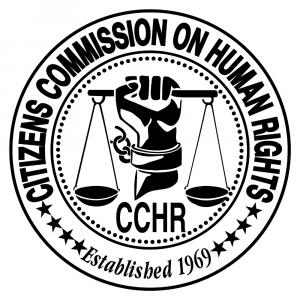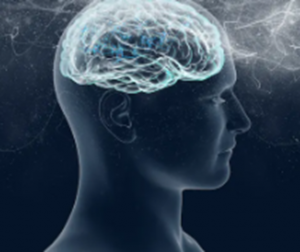People taking many common psychiatric drugs, especially antipsychotics, should limit their exposure to summer heat and strenuous activity and drink plenty of water.

Many common psychiatric drugs impair the body’s cooling mechanism or cause the people taking them to be less sensitive to signs of overheating, increasing their risk of heat-related illness, including life-threatening heat stroke.

The elderly are even more at risk of heat-related illness from psychiatric drugs that impair temperature regulation.

Current heat wave in U.S. South adds to risk of heat exhaustion and heat stroke in those taking certain psychiatric drugs, especially antipsychotic drugs. In risk situations such as heat waves, the risk/benefit ratio of psychotropic drugs which could interfere with body temperature regulation has to be carefully assessed, particularly in the elderly.”
— Karin Martin-Latry, PharmD, PhD, University of Bordeaux WASHINGTON, DC, US, June 28, 2023/EINPresswire.com/ -- Extreme heat, like the heat wave currently gripping the U.S. South, is especially dangerous for those prescribed many common psychiatric drugs, particularly antipsychotic drugs, that increase the risk of heat-related illness, ranging from the mild discomfort of heat cramps to the more serious symptoms of heat exhaustion and life-threatening heat stroke.
Many common psychiatric drugs can impair the body’s cooling mechanism or cause the people taking them to be less sensitive to signs of overheating, thus predisposing them to heat-related illness. Medical emergencies occur when the body’s temperature rises to dangerous levels and the body becomes unable to lower its temperature. Bodily damage, which can be fatal, occurs if steps are not taken to lower body temperature. One study found that taking psychiatric drugs nearly doubled the risk of death during a heat wave.
The elderly are even more susceptible to the risk of heat-related illness. The body’s temperature regulation is generally slower in older adults. Compared to young people, older adults also sweat less and radiate less heat, so the core body temperature rises more easily. The rate of hospitalization for heat stroke is significantly higher for older adults and their hospital stays are longer.
“In special risk situations such as heat waves, the risk/benefit ratio of psychotropic drugs which could interfere with body temperature regulation has to be carefully assessed, particularly in the elderly,” concluded French researchers, led by Karin Martin-Latry, PharmD, PhD, in a study published in European Psychiatry.
How many people taking psychiatric drugs end up with heat-related medical emergencies? Nobody knows.
“Due to the lack of research in the field, it is impossible to estimate the scale of the problem” of the interaction between drugs and heat, Ying Zhang, senior lecturer at the University of Sydney’s School of Public Health, told the Washington Post. [1]
During periods of extreme heat, those taking antipsychotic drugs are at particular risk of heat stroke. Antipsychotics reduce sweating, the body’s natural means of cooling, as well as reduce the users’ behavior to cool themselves, like drinking more water or removing extra clothing. Even a short time in very hot weather can cause a rapid rise in body temperature for people on these drugs.
“Patients who are prescribed antipsychotics should be aware of the potentially fatal adverse events that can occur from these medications,” warned doctors in a recently published case report on antipsychotic drug-induced hyperthermia. [2]
Stimulant drugs, like ADHD drugs, are known to raise body temperature, as well as interfere with the body’s ability to cool itself down. High summer temperatures can cause body temperatures that are already elevated by these drugs to go higher still.
Tricyclic antidepressants decrease sweating, along with inhibiting the body’s ability to regulate temperature, which can result in body temperature rising to dangerous levels during summer heat waves.
Selective serotonin reuptake inhibitor (SSRI) antidepressants can increase sweating while at the same time reducing thirst, which can lead to dehydration and heat illness in very hot weather.
Those taking psychiatric drugs should limit their exposure to summer heat and strenuous activity and drink plenty of water. Seek immediate medical attention for anyone showing signs of heat stroke, including confusion, unconsciousness, a rapid pulse, a high temperature, or red, hot, dry skin.
The Citizens Commission on Human Rights (CCHR) continues to raise public awareness of the risks of serious side effects from psychiatric drugs, so that consumers and their physicians can make fully informed decisions about starting or stopping the drugs.
CCHR recommends a complete physical examination with lab tests, nutritional and allergy screenings, and a review of all current medications to identify any physical causes of unwanted mental or behavioral symptoms, which might otherwise be misdiagnosed as a psychiatric disorder and incorrectly treated.
WARNING: Anyone wishing to discontinue or change the dose of a psychiatric drug is cautioned to do so only under the supervision of a physician because of potentially dangerous withdrawal symptoms.
The Citizens Commission on Human Rights was co-founded in 1969 by members of the Church of Scientology and the late psychiatrist and humanitarian Thomas Szasz, M.D., recognized by many academics as modern psychiatry’s most authoritative critic, to eradicate abuses and restore human rights and dignity to the field of mental health. CCHR has been instrumental in obtaining 228 laws against psychiatric abuse and violations of human rights worldwide.
The CCHR National Affairs Office in Washington, DC, has advocated for mental health rights and protections at the state and federal level. The CCHR traveling exhibit, which has toured 441 major cities worldwide and educated over 800,000 people on the history to the present day of abusive and racist psychiatric practices, has been displayed at the Congressional Black Caucus Foundation Annual Legislative Conference in Washington, DC, and at other locations.
[1] https://www.washingtonpost.com/health/risks-for-some-medications-rise-as-temperatures-climb/2020/06/25/0ba887e4-ae90-11ea-856d-5054296735e5_story.html [2] https://pubmed.ncbi.nlm.nih.gov/34659926
Anne GoedekeCitizens Commission on Human Rights, National Affairs Office+1 202-349-9267email us here
CCHR: Psychiatric Drug Side Effects
[embed]https://www.youtube.com/watch?v=tlR4pntJboI[/embed]
You just read:
News Provided By
June 28, 2023, 19:27 GMT
Distribution channels: Banking, Finance & Investment Industry, Beauty & Hair Care, Consumer Goods, Culture, Society & Lifestyle, Education, Emergency Services, Environment, Food & Beverage Industry, Healthcare & Pharmaceuticals Industry, Human Rights ...
EIN Presswire's priority is source transparency. We do not allow opaque clients, and our editors try to be careful about weeding out false and misleading content. As a user, if you see something we have missed, please do bring it to our attention. Your help is welcome. EIN Presswire, Everyone's Internet News Presswire, tries to define some of the boundaries that are reasonable in today's world. Please see our Editorial Guidelines for more information.
Originally published at https://www.einpresswire.com/article/641996052/extreme-heat-alert-many-common-psychiatric-drugs-can-increase-patients-risk-of-heat-related-illness







